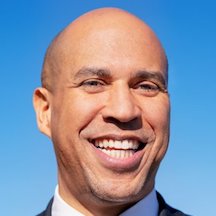 New Jersey Senator Cory Booker is far down in the polls for the Democratic presidential nomination, but Senator Booker has proposed a new plan that provides a bigger boost to the nation’s historically Black colleges and universities than his opponents in the race.
New Jersey Senator Cory Booker is far down in the polls for the Democratic presidential nomination, but Senator Booker has proposed a new plan that provides a bigger boost to the nation’s historically Black colleges and universities than his opponents in the race.
In a new proposal, Senator Booker pledges $100 billion in support to the nation’s HBCUs. That is equivalent to nearly $1 billion for each and every HBCUs in the nation. The plan has three main components:
- The plan would also allocate $30 billion in U.S. Department of Education grants to enable HBCUs and other minority-serving institutions to expand and improve STEM education and help with recruitment, retention, and graduation rates.
- The Booker plan would devote $30 billion to improve campus infrastructure including facilities and technology to ensure all students have access to a world-class education in world-class facilities.
- In a novel proposal, Booker proposes that HBCUs be placed at the forefront of the scientific effort to combat the climate crisis. At least 10 percent of his $400 billion plan to address climate change would be based at HBCUs and other minority-serving institutions. Each hub would be focused on reasserting our global leadership in research and development and leading the way in tackling the most important challenges in basic science, applied research, manufacturing, and commercialization.
Both of Senator Booker’s parents graduated from HBCUs. In a statement, the candidate said, “HBCUs make our country stronger and more reflective of the diversity that makes us so great. I am here today because of the power of these institutions to uplift and bring about opportunity to Black Americans. As president, I will redouble our efforts to support and invest in HBCUs across the country — my mother and father wouldn’t have it any other way.”
(This post is not an endorsement of any candidate. Several other candidates also have unveiled detailed plans to help HBCUs. JBHE will explore the plans of other candidates in future posts.)












Cory Booker has the wrong approach to higher education.
What should be of greatest priority is not money for buildings, equipment or infrastructure. What should matter most are the ideas, values and skills identified, recognized and transmitted to a new generation of Americans.
Instruction can be delivered in a park, sitting under a tree, without even the benefit of any form of shelter.
But Cory thinks first about money for infrastructure. He should instead be focused on the quality of the teachers and curriculum, and on the recruitment of astute, efficient managers for our post-secondary institutions. We all know cases where limited resources are squandered on badly written construction contracts and outlandish salaries and travel expenses for a few entitled executives.
Well said Ewart